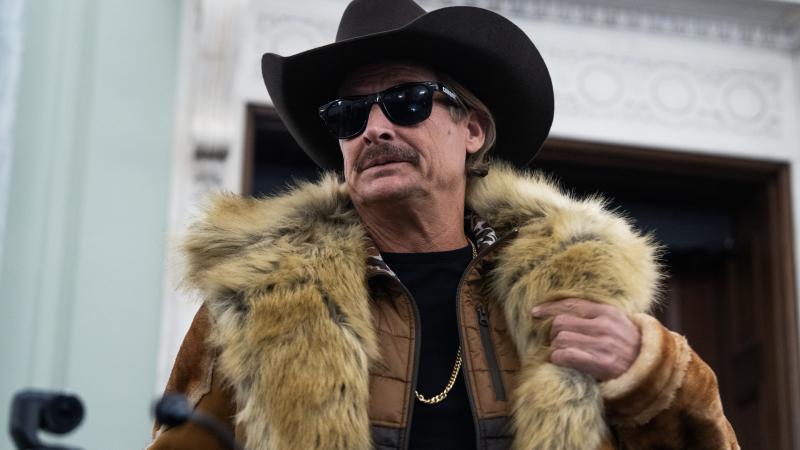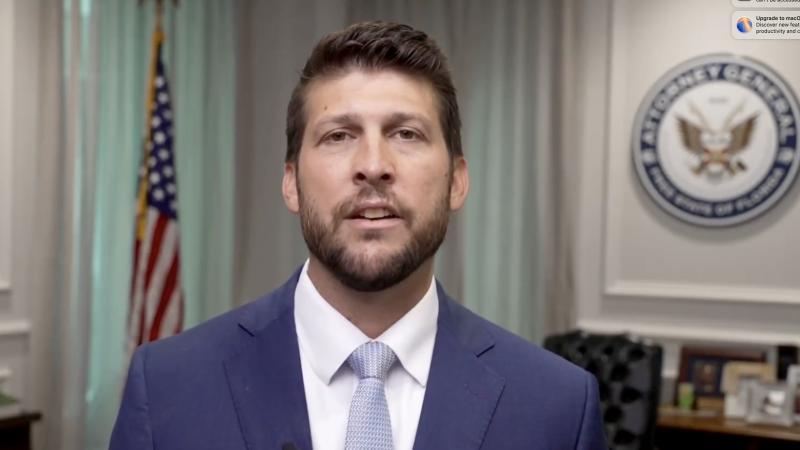Fighting racism or erasing history? Public support for leaving Confederate statues in place plummets
The numbers in support of leaving the monuments intact are heading in the same direction among both blacks and whites: straight down.
Public support for leaving Confederate monuments standing is coming down faster than statues of Robert E. Lee and Stonewall Jackson.
As recently as June 6-7, a 44% plurality of respondents in a national Morning Consult/Politico poll said the Confederate statues should “remain standing,” while only 32% said they should be “taken down.”
By June 17, barely a week and a half later, a majority of voters, 52%, supported “removing Confederate statues from public spaces around the country” in a Quinnipiac poll, compared to 44% opposed to removal. Those numbers represented a historic swing from August 2017, when Quinnipiac found just a 39% minority favoring removal, with 50% opposing.
Conducted at the climax of public unrest over the police killings of George Floyd and Rayshard Brooks, the Quinnipiac study showed that black and white Americans remain divided on the subject of Confederate statues. 51% of whites surveyed oppose taking them down.
But the numbers in support of leaving the monuments intact are heading in the same direction among both blacks and whites: straight down.
Eighty-four percent of black Americans in the Quinnipiac poll support removing Confederate statues from public spaces nationwide. A YouGov.com poll found that 62% of black Americans see statues of Confederate war heroes as a “symbol of racism,” with just 18% of blacks saying that Confederate statues represent “southern pride.” And an ABC News/Ipsos Poll News released on June 19 found that two-thirds of black Americans favor renaming American military bases named after Confederate leaders.
Tomeka M. Robinson, Associate Professor of Writing Studies and Rhetoric at Hofstra University, includes herself in the overwhelming majority of black Americans (and the new slight majority of all Americans) who oppose leaving statues honoring Confederate war heroes in place.
“I think they absolutely should be removed and placed in museums because of their historical nature,” Robinson said. “Museums can place them into context in ways that public spaces cannot.”
Carol Swain, a former professor at Vanderbilt University and host of the podcast Be the People, disagrees. She opposes “tearing down monuments that honor people of the past” and does not believe that they “should be interpreted through the moral lens that we use today.”
“I think they have to be viewed in that historical context,” Swain continued. “And there’s far more value in learning from the past than trying to erase it.”
Chloe Valdary, a black writer, public intellectual, and self-defined Zionist who is known for her association with the Dark Web, believes that it is a “contradictory thing for a country that claims to uphold liberty to put people on a pedestal who fought to uphold slavery.”
And while she does not see herself being “physically harmed by a statue of Jefferson Davis,” Valdary maintains that similar symbols of the Confederacy are “harmful to America.”
Harold Willis, a 28-year-old black man from Queens, New York, expressed mixed feelings on the fate of the statues. “I don’t think they should be removed, because although those people messed up compared to our standards today, they were heroes in some way,” he said.
“Now,” Willis continued, “if they committed genocide, and are being celebrated for that, then tear that down. But apart from that, just leave them up.”
Regardless of the public’s opinion on this issue, elected officials have already been demounting Confederate statues to place them elsewhere. In 2017, New Orleans Mayor Mitch Landrieu removed four Confederate monuments in 25 days. He is now urging Mayor John Tecklenburg of Charleston, S.C. to remove a statue of John C. Calhoun — American statesman and leading defender of the South's slave system and “states’ rights” — from that city’s Marion Square.
“He should take [it] down as soon as he is legally authorized to do it, in a safe way so that nobody gets hurt and everybody is protected,” he said.
Some activists have now moved beyond Confederate generals and are targeting statues honoring the American Founders. On June 18, a 100-year-old statue of George Washington mounted on the lawn of the German American Society in Northeast Portland was toppled by protesters demonstrating against the Floyd killing. Across his fallen likeness was graffitied “1619.”
Mount Vernon President and CEO Douglas Bradburn told Just the News: “Without George Washington, there would be no United States; there would be no Constitution, which allows the freedom of speech, assembly, and protest, as well as the separation of church from state and without Washington we would not have a civilian-led military. If we fail to honor George Washington, because we understand him only as a slave owner, we will lose the story of the United States, for it will have no beginning and very little direction.”















